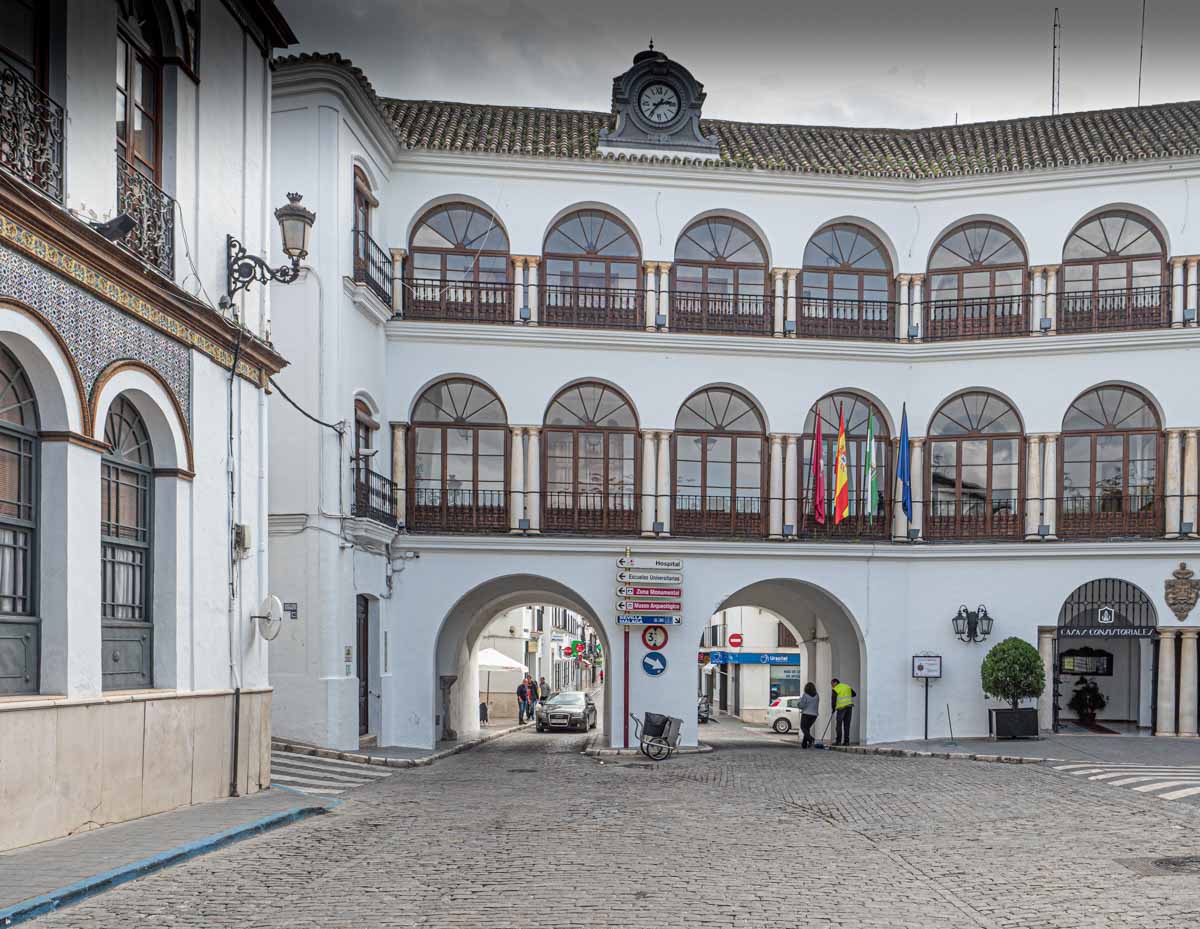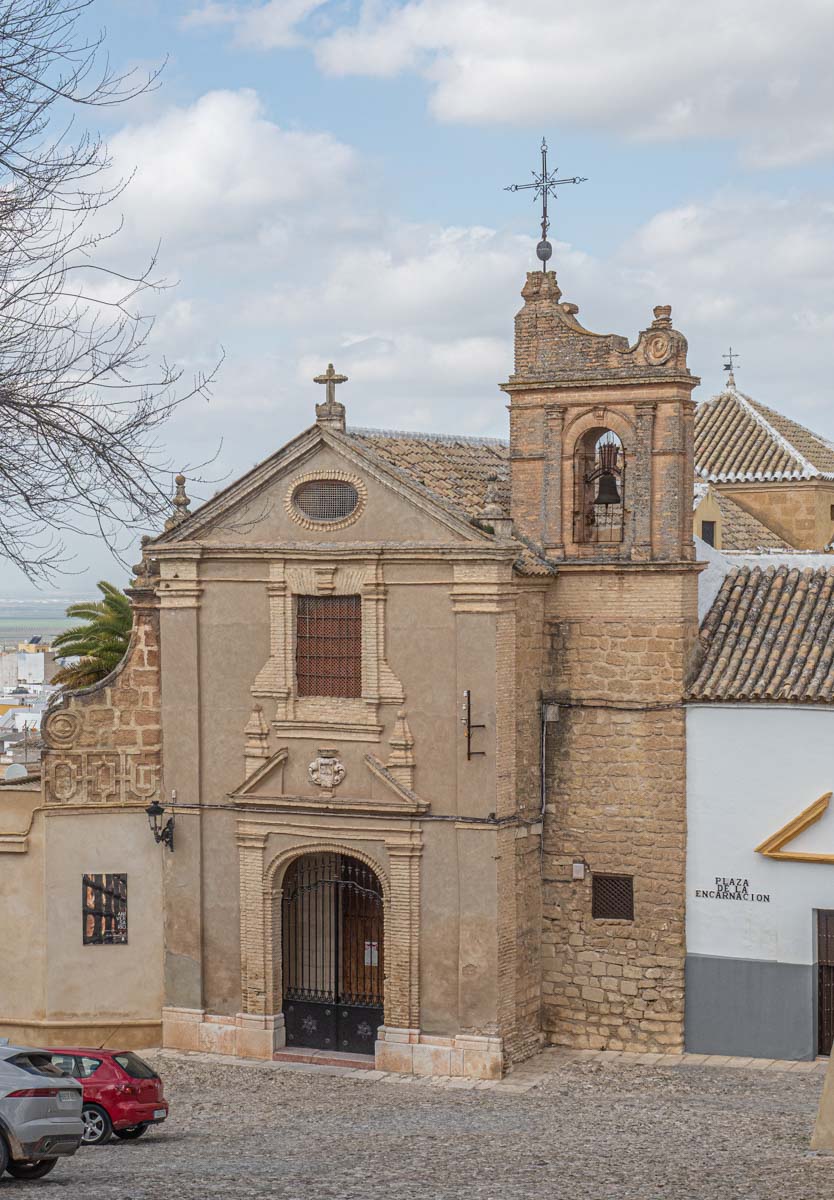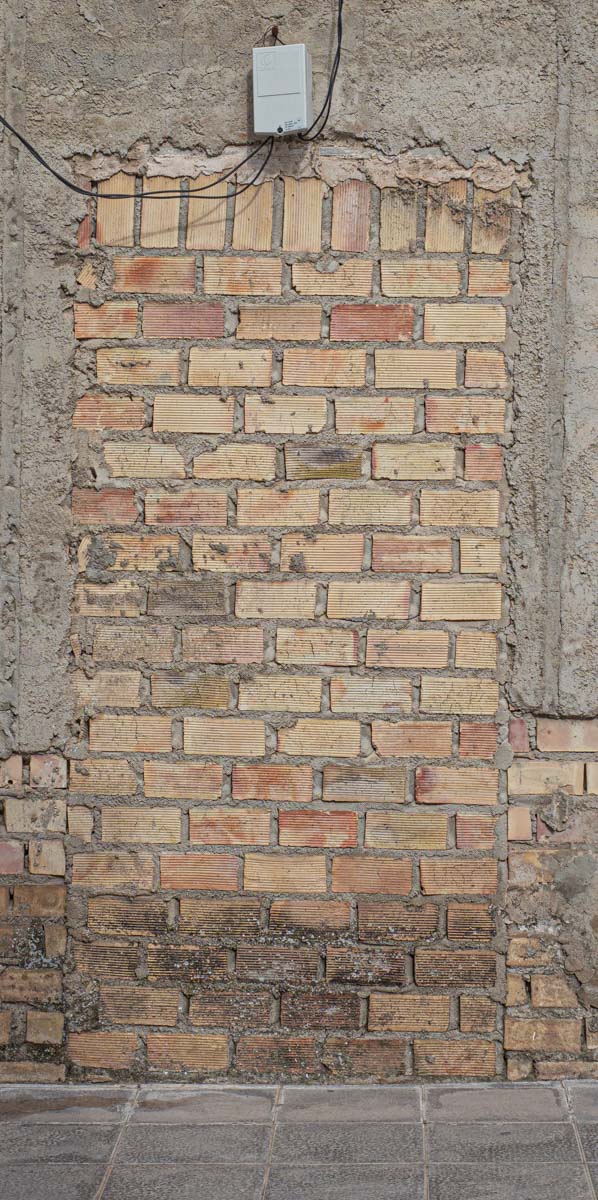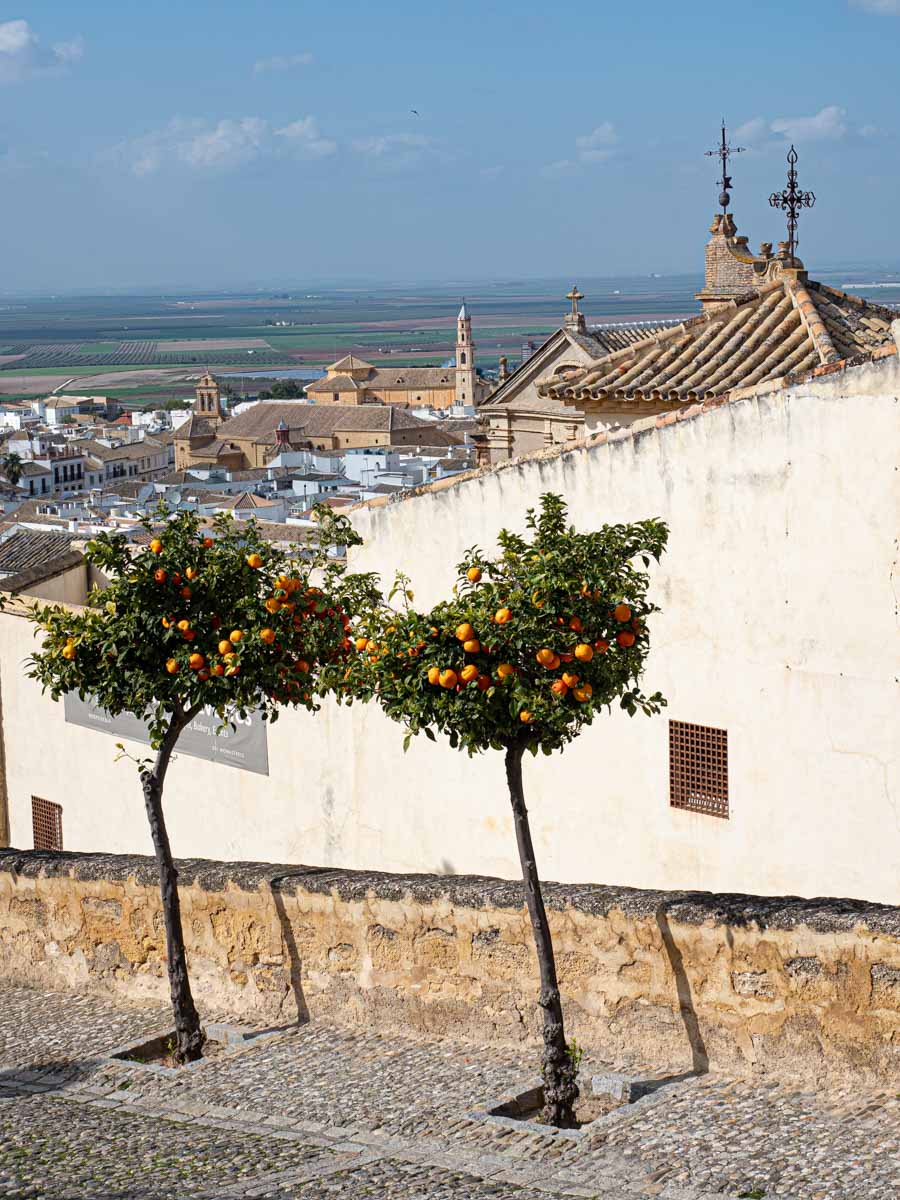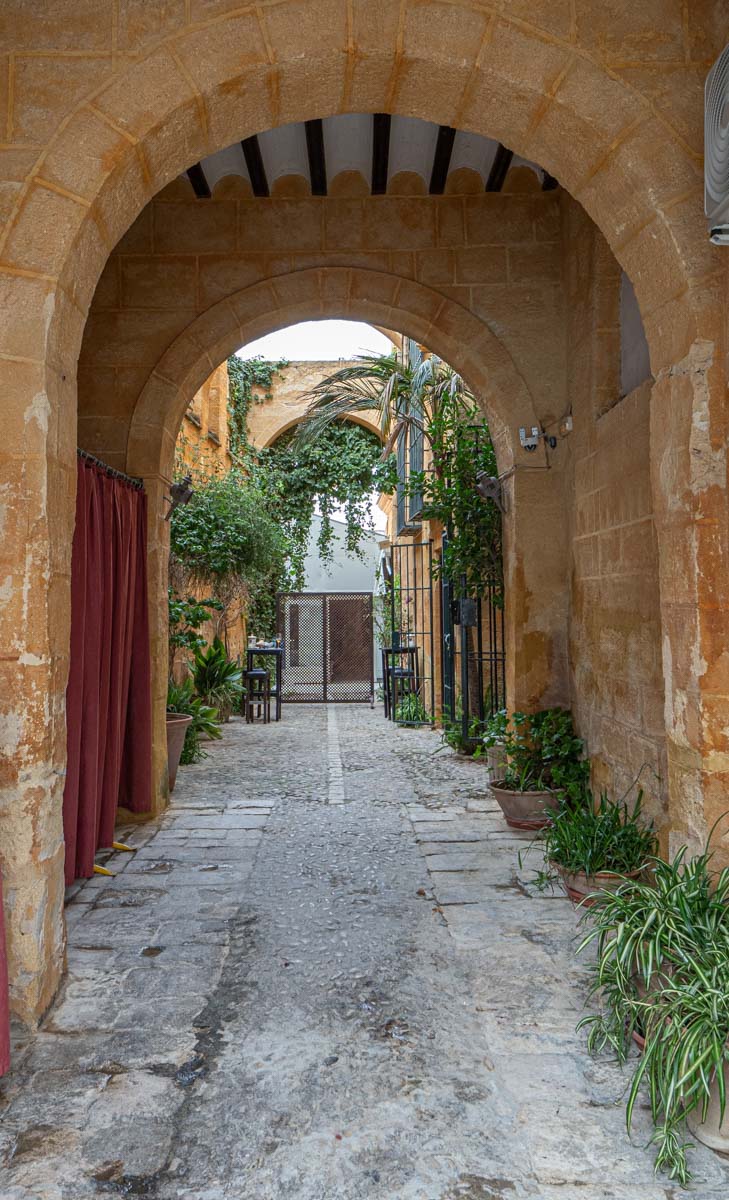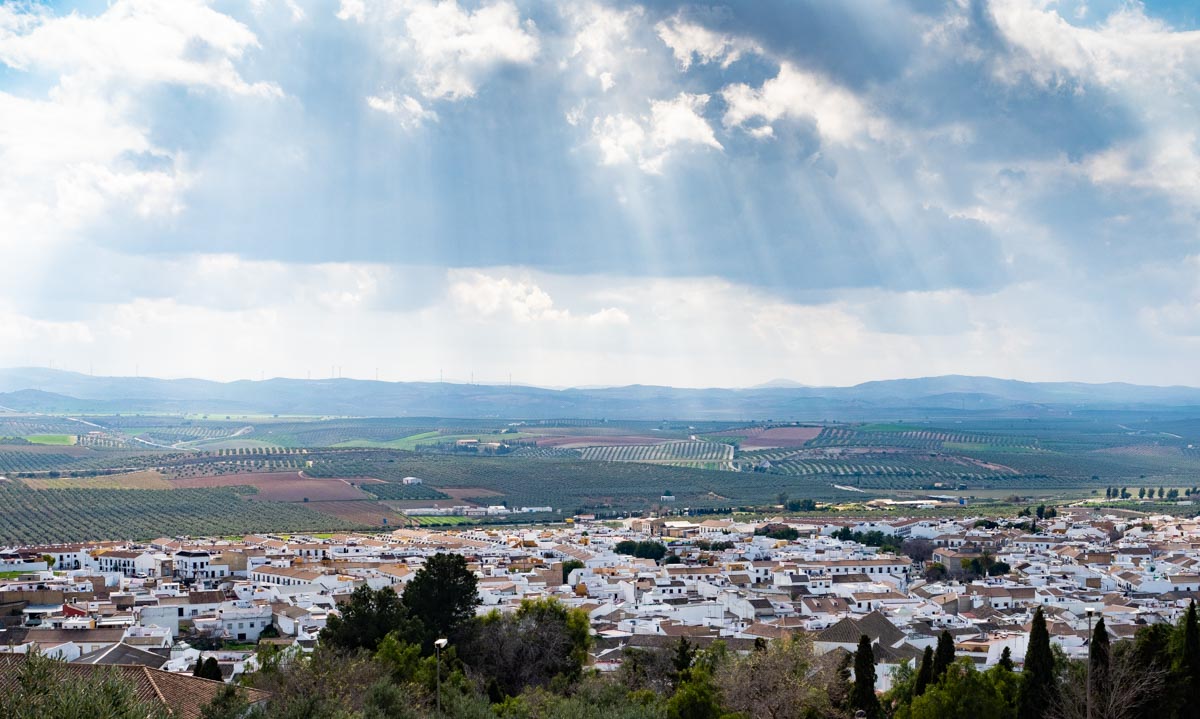Team Basil woke up to the now unusual sensation of cold! Being at the foot of the snow covered Sierra Nevada it should have been no surprise, but the days are now so warm in the sunshine that having to put on Basil’s heating was a bit of a shock.
The Sierra Nevada’s snowy peaks accompanied the first part of our journey today to the Andalusian town of Osuna and enormous olive groves, the remainder.
Last year The Guardian newspaper carried an article on some smaller towns to visit in Andalusia. Since we have previously visited most of the larger towns and cities in the province (prior to us owning Basil) our next three stops come from The Guardian’s list, Osuna being the first.
The town has a free aire (37.2309947, -5.0970353), complete with emptying and filling facilities, as part of a supermarket complex. The two are so integrated I suspect that building facilities for motorhomes must have been part of the planning authorisation. If so, what an excellent idea for those towns wanting to increase tourism. This is a smallish town off the beaten track and it has 6 motorhomes in early February. It also benefits the supermarket, because we, for one, will be shopping there.
Osuna goes back to at least Roman times and maybe longer. Most of the buildings of note, however, relate to the 16th to 19th Centuries. The whole of the central part of the town is very attractive, with most of the houses, Andalusian style, painted white. On the whole, however, the houses are grander in scale than those you might see in the famous Pueblos Blancos (white villages).
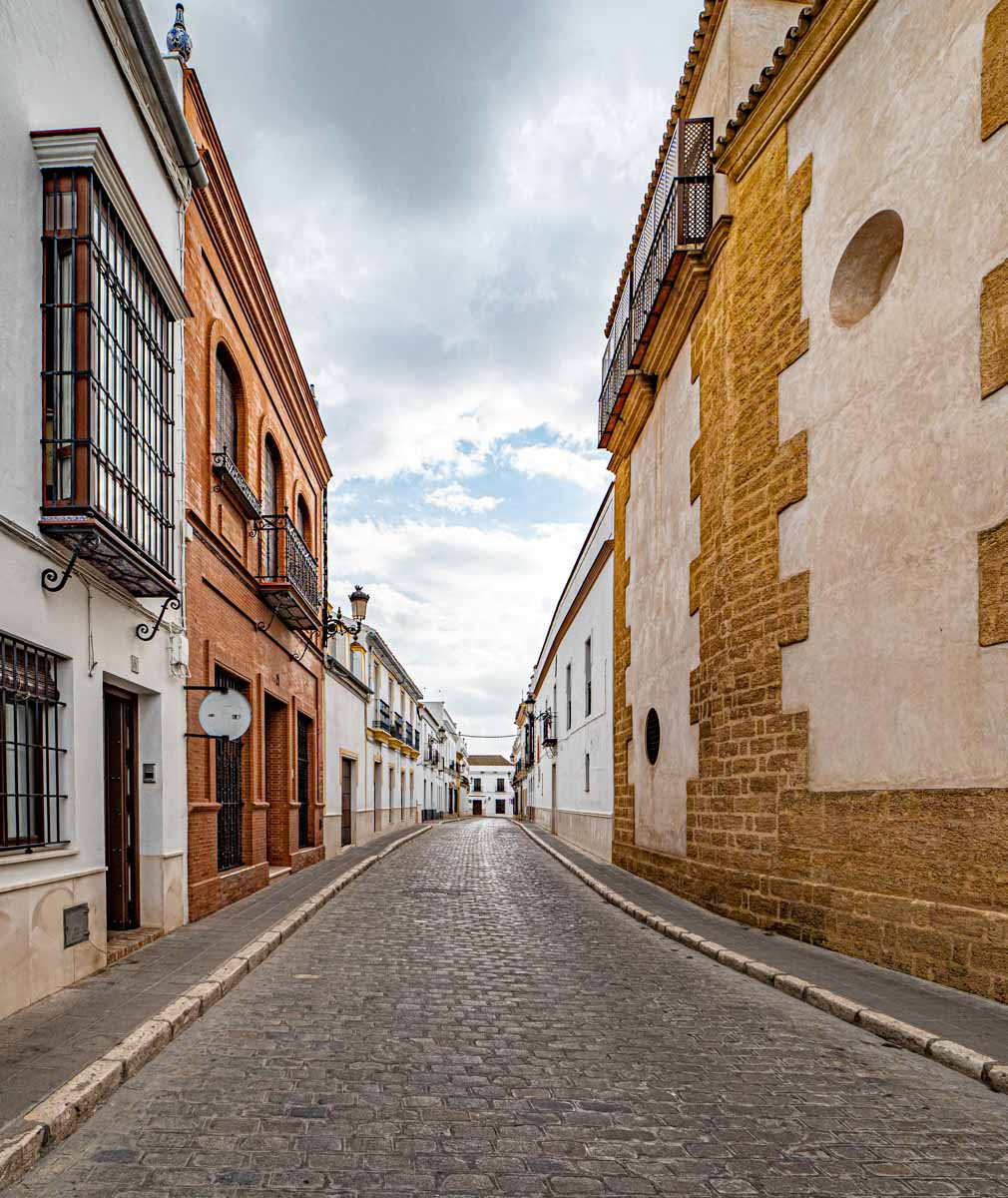
At the highest point of the town is a large, square building, with towers at each corner which is the old university. It dates to 1548 and so is a very ancient university. It was abolished in the 1800’s by King Fernando VII as being a hotbed of liberal thought. It is now part of a secondary school.
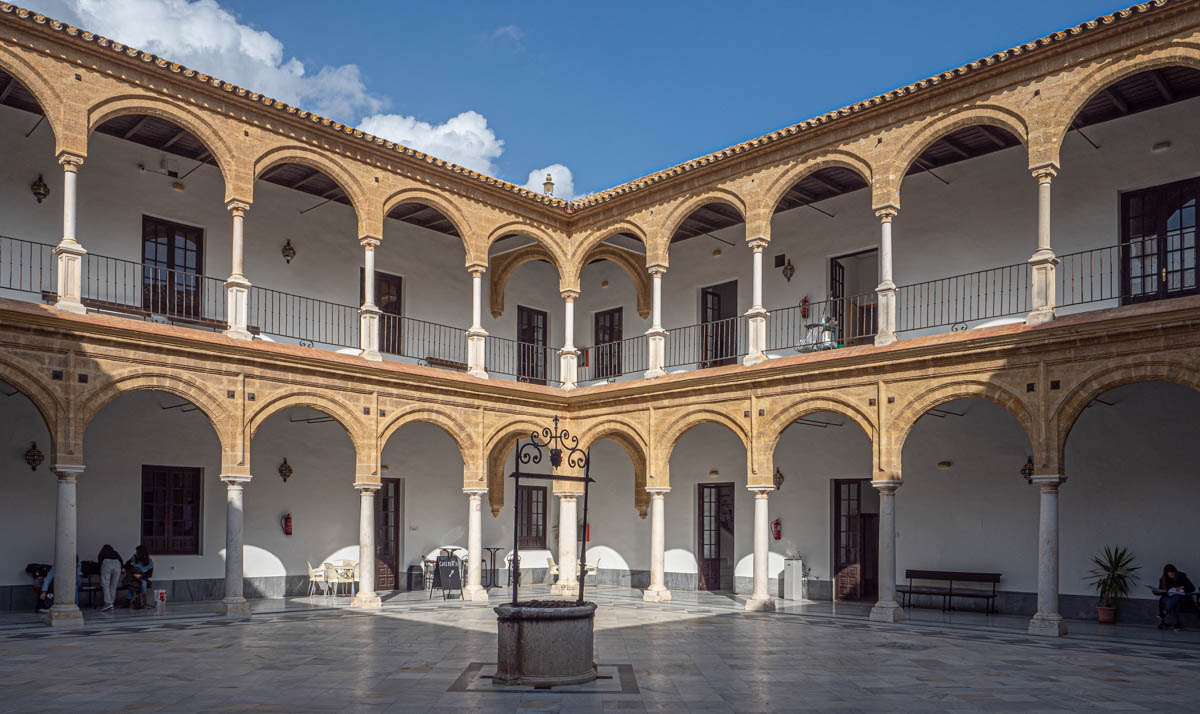
Also on the hill overlooking the town is an enormous complex known as the Collegiata which contains a church and also the burial complex for the Dukes of Osuna. This is currently being restored and was closed when we visited.
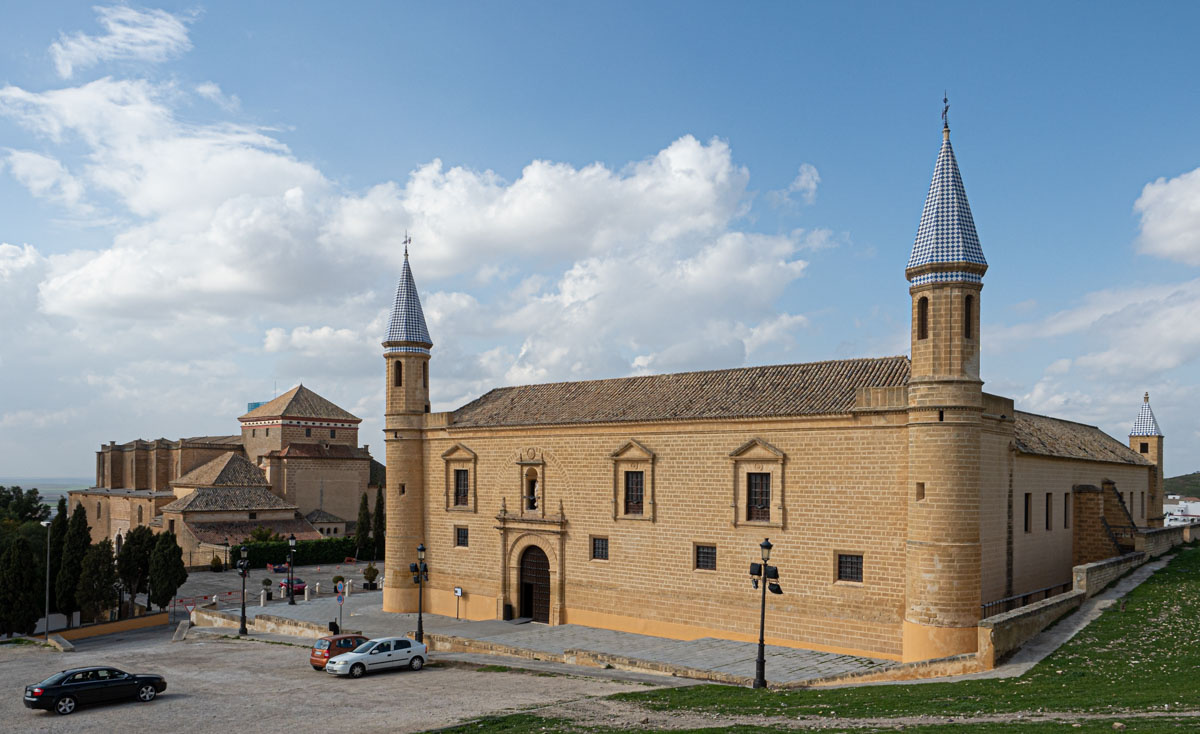
The rest of the town contains a variety of beautiful, honey coloured, sandstone buildings including convents, monasteries, churches and a handful of old palaces.
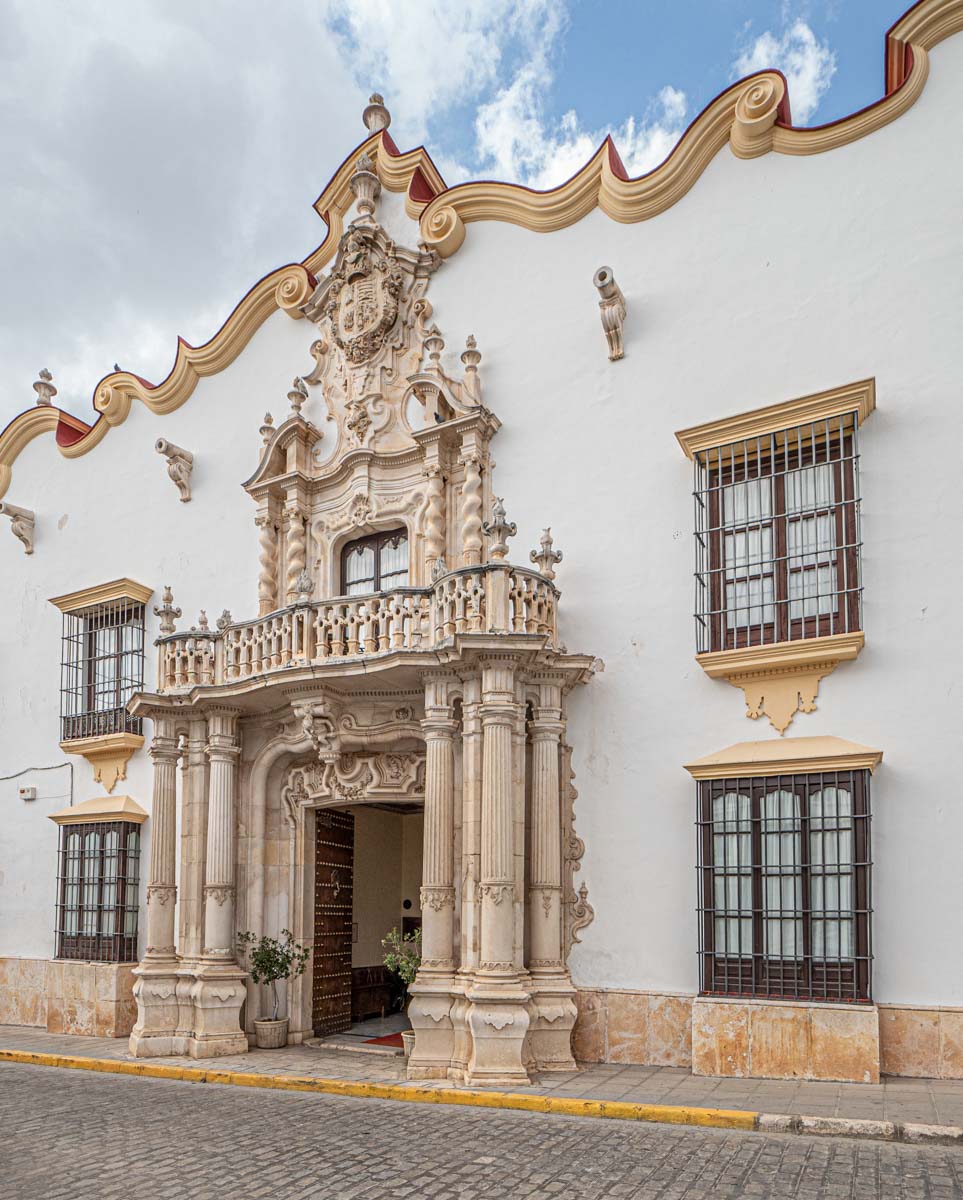
We spent about 3 hours wandering the streets. It is the first town we have visited where the whole town, not just the monuments, have been worth exploring. For people who have already enjoyed Seville, Cordoba and Granada, Osuna is certainly worth a visit. It will be interesting to see if The Guardian’s other two destinations match up.
